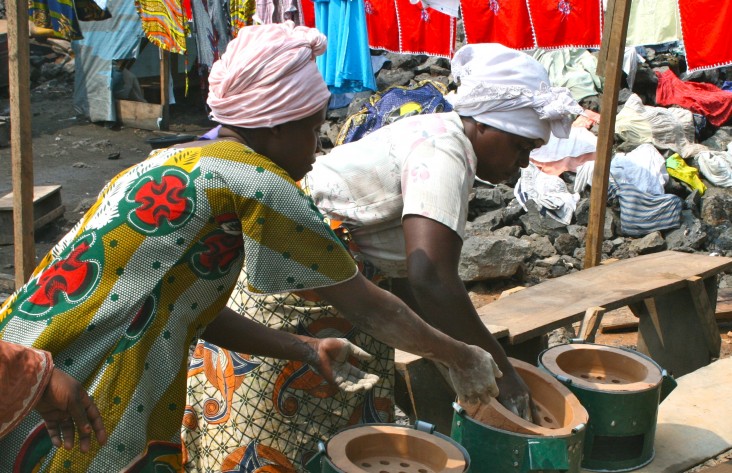
Democracy, Human Rights, and Governance
USAID improves good governance, expands the rule of law, and supports decentralization by strengthening the national and provincial judiciary and legislature. Programs support the creation of an effective and equitable justice system, promote good governance, protect human rights, fight corruption, strengthen independent media, promote civic participation, enhance political competition, and build the legislature’s capacity to function effectively and in consultation with a range of stakeholders.
Global Health
Following the Global Health Initiative’s strategy of government ownership, USAID programs provide a package of services approved by the DRC government that focus on improving the quality of maternal and child health services; provision of potable water; prevention, care and treatment services for malaria, tuberculosis, and HIV/AIDS; and provision, education, and access to family planning services. Our programs also coordinate with other donors and organizations to reduce duplication and maximize efforts to improve the overall health of the Congolese people. Through the President's Emergency Plan for AIDS Relief and the President’s Malaria Initiative, we work to strengthen the DRC’s fragile health system and increase the capacity of its workforce, while improving access to integrated, quality care.
Education
To improve access to quality education, we are enhancing the quality of teacher training, providing learning materials, strengthening management capacity, mobilizing communities around schools and education issues, delivering scholarships to students, and rehabilitating and equipping schools. The introduction of innovative methods like interactive radio instruction and student-centered learning has contributed to improved teacher performance and effectiveness, and increased student enrollment and achievement. Our programs also address the alarming level of sexual and gender-based violence in eastern DRC through the provision of care and treatment services for survivors and their families. Programs also build awareness of the consequences of allowing these abuses and develop and strengthen systems to support the protection and wellbeing of children and families.
Economic Growth and Trade
Aligned with the principles of Feed the Future, we invest in agricultural productivity, distribution, and processing; livelihoods support; and food assistance for vulnerable people in eastern DRC. Programs are also engaged in the mining sector to support supply chain solutions to the challenges of conflict minerals in DRC and the Great Lakes Region.
Environment
We assist the DRC and six other countries in the region to manage the natural resources of the Congo Basin and maintain the ecological integrity of the forest ecosystem. These efforts will reduce deforestation degradation, the loss of biodiversity, and greenhouse gas emissions.
Working in Crises and Conflict
We provide crucial support to the Government of the Democratic Republic of Congo’s Stabilization and Recovery Program through community-based reconstruction and infrastructure support, as well as reintegration of ex-combatants. These activities are designed to mitigate ongoing conflict, with the long-term goal of extending state administration and basic social services to the entire national territory. Other programs address transnational crime, such as human trafficking.
Programs also support humanitarian agriculture and food security programs, economic recovery and market activities, health programs, logistics and emergency relief commodities, nutrition support, protection, and water, sanitation, and hygiene activities. All programs integrate care and support of survivors of gender-based violence, and we support a rapid response mechanism to meet emergency needs of newly displaced. We also support coordination and air services to enable workers to reach otherwise inaccessible regions.








Comment
Make a general inquiry or suggest an improvement.